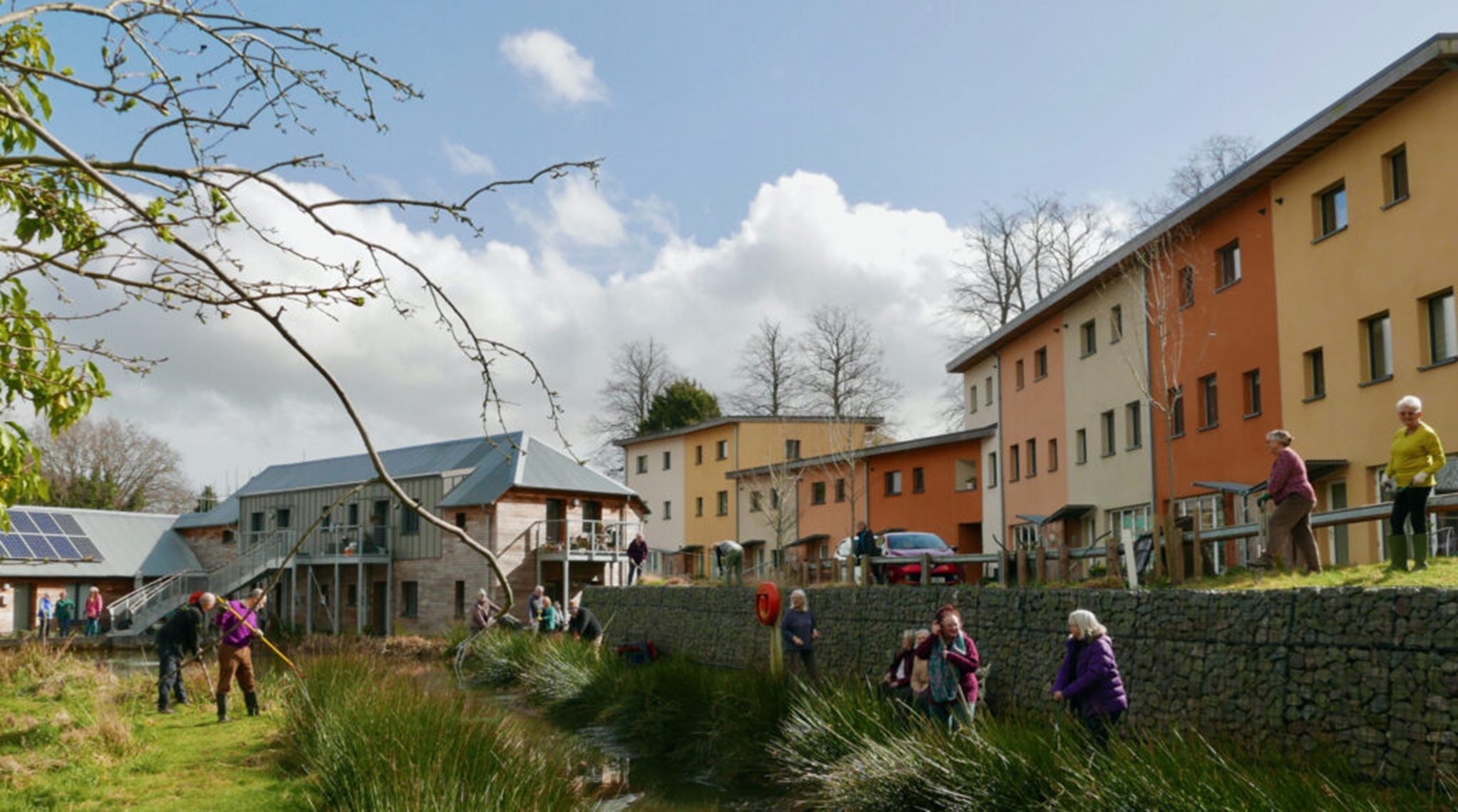Case Studies
Cannock Mill co-housing, Colchester
Surveillance
The housing development overlooks a shared open space, creating passive surveillance. Active frontages surrounding the development promote a sense of safety.
Shared Space and Management
There are shared spaces and shared management on this development, promoting a strong sense of community by operating in a collectivist manner. Developments that promote collectivism, for example co housing, promote a strong sense of awareness of who is a part of the community and who isn’t, which enhances safety. Shared responsibility is also a key aspect for creating safer environments for women and girls as neighbours and residents are more likely to believe that it is their duty to protect the security of the neighbourhood. This improves the likelihood of someone responding to a threat. Therefore, whilst most schemes will not follow the co-housing residential typology, its principles promoting communities that feel connected psychologically as well as physically and of creating shared spaces with shared ownership can be utilised to encourage desirable behaviours.
https://cannockmillcohousing.co.uk/
Great Oakley, Tendring
Homezones and Pedestrian Dominated streets
Creating streets that are primarily designed for people and not cars breaks down the isolation that is encouraged in otherwise car dominated streets and encourages a sense of community. This is because in homezones the streets are an active part of the public realm where children can play outside their home, encouraging passive networks and social responsibility to develop. This helps to develop a sense of familiarity to neighbours and promote the duty of social responsibility.
Surveillance
The houses having fronts to fronts encourages surveillance and better connectivity to the street. This reduces occurrences of crime, as there are more eyes on the street providing natural surveillance.
Channels Drive, Chelmsford
Active Frontages
This site has active frontage along the streets, corners, and blocks. This creates natural surveillance and overlooking over the neighbourhood. Corner turning buildings have windows on all street-facing sides. This is a representation of strong design as it enhances interaction with the street and natural surveillance.
Lowered and Shared paving
This development has a high-quality pavement which is lowered or shared, making the development very accessible for women with prams, disabled women, and elderly women. This is because the transition between the pavement and the road is a smoother and safer for these demographics. The pavement material is also smooth so that women with children or mobility issues can seamlessly travel.
Page updated: 29/06/2023


